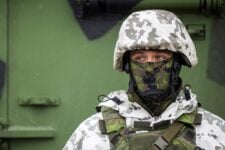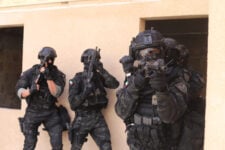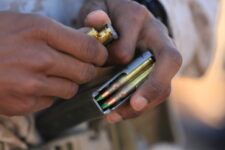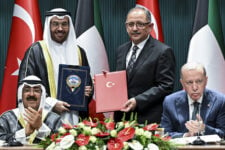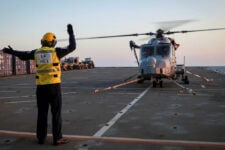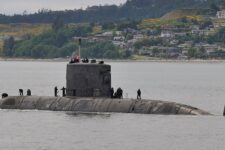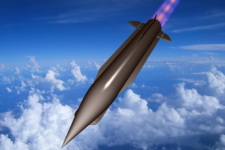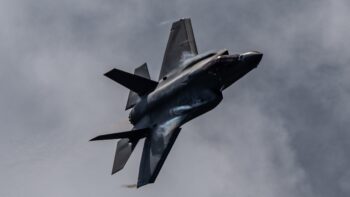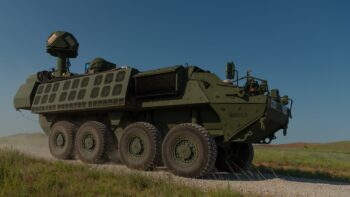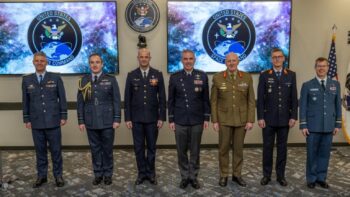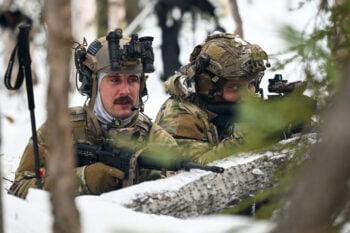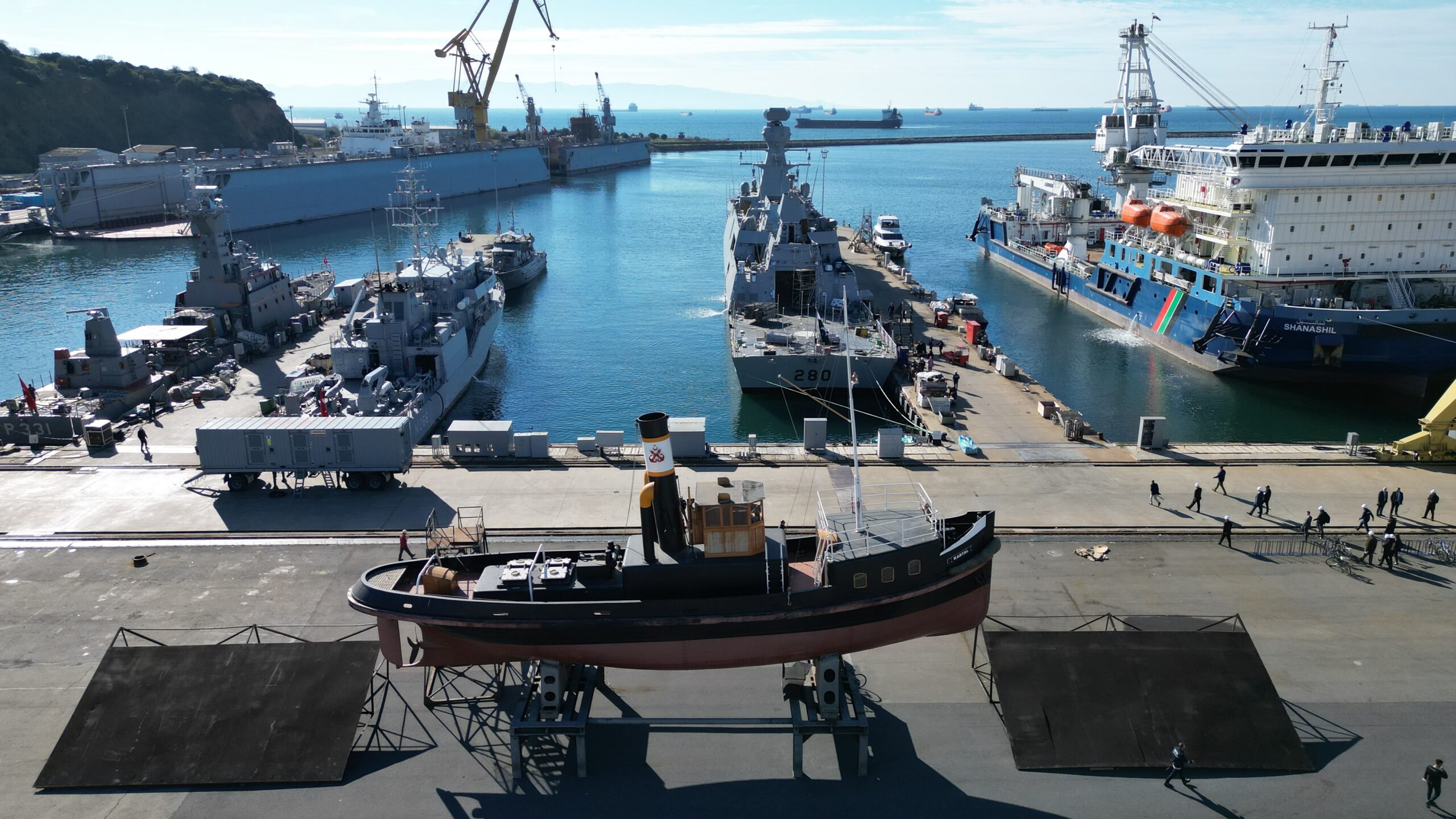
ASFAT shipyard in Istanbul. (ASFAT handout)
ISTANBUL — As Turkish state-owned defense contractor ASFAT puts the finishing touches on a corvette destined for Pakistan, company officials recently described how they hope to vastly expand the firm’s operations, eyeing dozens of new deals collectively worth some $7.7 billion.
Late last month Breaking Defense joined other publications on a tour organized by ASFAT, which is the Turkish acronym for Military Factory and Shipyard Management Inc., to see ongoing projects at a shipyard in Istanbul and hear from the firm’s top officials.
ASFAT operates in nine naval shipyards throughout Turkey; six of which are dedicated to maintenance, repair and overhaul; and three for shipbuilding, from steel cutting to final fitting and integration. Facilities in Golcuk specialize in submarines, whereas those in Istanbul take on projects for larger ships like corvettes and frigates, and in Izmir the company works on small boats.
The company also works in aircraft maintenance, precision guidance kits production, fire fighting kits as well as unmanned mine clearing vehicles, and altogether has 27 military factories under its umbrella. And though it is state-owned, ASFAT’s CEO and general manager Esad Akgun told reporters it’s run more like a private firm. That, he said, gives ASFAT the “flexibility of any private company and the strength of the Minister of Defense to execute projects not only to our armed forces but also to allied countries.”
Naturally the ASFAT’s largest customer is the Turkish military, but it’s also currently working through major deals for ships with Pakistan. The company said it’s signed $3.2 billion in contracts altogether, some of them are completed and others are in the works.
But ASFAT is eyeing many more, and collectively bigger deals, the world over. Akgun said, for instance, that the company has “business development activities in more than 30 countries including some NATO allies,” and though no NATO contracts have been signed, he’s confident some will come pass. He noted that such deals with NATO would probably lean to aircraft maintenance, as the firm has joint cooperation with Airbus and operates an A400M MRO facility in Turkey.
Company officials said it is also negotiating with Romania for potential deals, and is trying to make inroads in the Gulf. Akgun told Breaking Defense that also Middle East countries including Qatar and the Kingdom of Saudi Arabia are on the company’s radar, and talks are ongoing, though he didn’t specify what platforms are being discussed.
“We have some project candidates with Qatar and KSA. There’s always interest from everybody without exception … but no deals are finalized yet,” he said. (Like other media, Breaking Defense accepted accommodations from ASFAT for the visit.)
The firm is planning to participate in Saudi World Defense Show in February 2024 and Qatari Dimdex in March 2024, attempting to push talks further with these two countries.
As for the Pakistani projects, one was on display as reporters toured the Istanbul shipyard. Islamabad’s MILGEM Babur-class corvette floated in the water while the final fitting and system integration is ongoing between the Turkish firm and Pakistani navy.
ASFAT officials said the ship has been developed with joint Turkish-Pakistani intellectual property, and that the third and fourth vessels in the deal will be constructed at a shipyard in Karachi, Pakistan.
ASFAT is also co-designing the Jinnah-class frigate with the Pakistani navy. Part of that deal is a technology transfer program that for the first time allows Turkey to send its shipbuilding know-how abroad. The frigate is expected to be nearly 120 meters long, have a range of 4,000 nautical miles, sail at 26 knots and have enough room for 200 people, the company said.
During the media tour, the Turkish firm’s officials highlighted the company’s tech transfer to Pakistan, suggesting that the joint IP and technology transfer arrangements could be applied to other countries, not least of which are Gulf countries that put localization as top priority for any defense deals.
National Projects
Back home, ASFAT is the prime contractor for the Turkish navy’s new Hisar-class offshore patrol vessels and is now building the first two OPVs under the contract. The Turkish navy plans to order a total of 10 vessels, and ASFAT hopes to build the other eight vessels. The first of these vessels is TCG Akhisar and is expected to be commissioned by mid 2024, followed four months later by the second one, the TCG Kochisar.
In April ASFAT was awarded the detailed design contract for the TF-2000, Turkish navy’s air defense destroyer. A preliminary design has been completed and now a detailed design is underway with the firm working to accommodate the Turkish navy’s needs. After the design phase, ASFAT officials said they hope to be the ones chosen to build the ships as well.
Company officials didn’t specify a specific timeline for the design phase to be finalized nor for the construction timeline. In a briefing with reporters, company officials said some “basic requirements” are changing and that the final budget has yet to be settled.
The firm is also aspiring to take a role in Turkish-built submarine MILDEN, which is also in the design phase. Earlier this year, ASFAT delivered the first 3,000-ton submarine floating dock to the Turkish navy. This dock is expected to be submarine maintenance and overhaul floating facility.
Istanbul famously straddles the Bosphorus Strait, which separates Europe and Asia — an apt location for ASFAT facilities as it attempts to reach customers on both continents and beyond.
US postured to lose without a Standing Combined Joint Task Force in INDOPACOM
In this op-ed, John D. Rosenberger discusses the need for a Standing Combined Joint Task Force to face the China threat.


